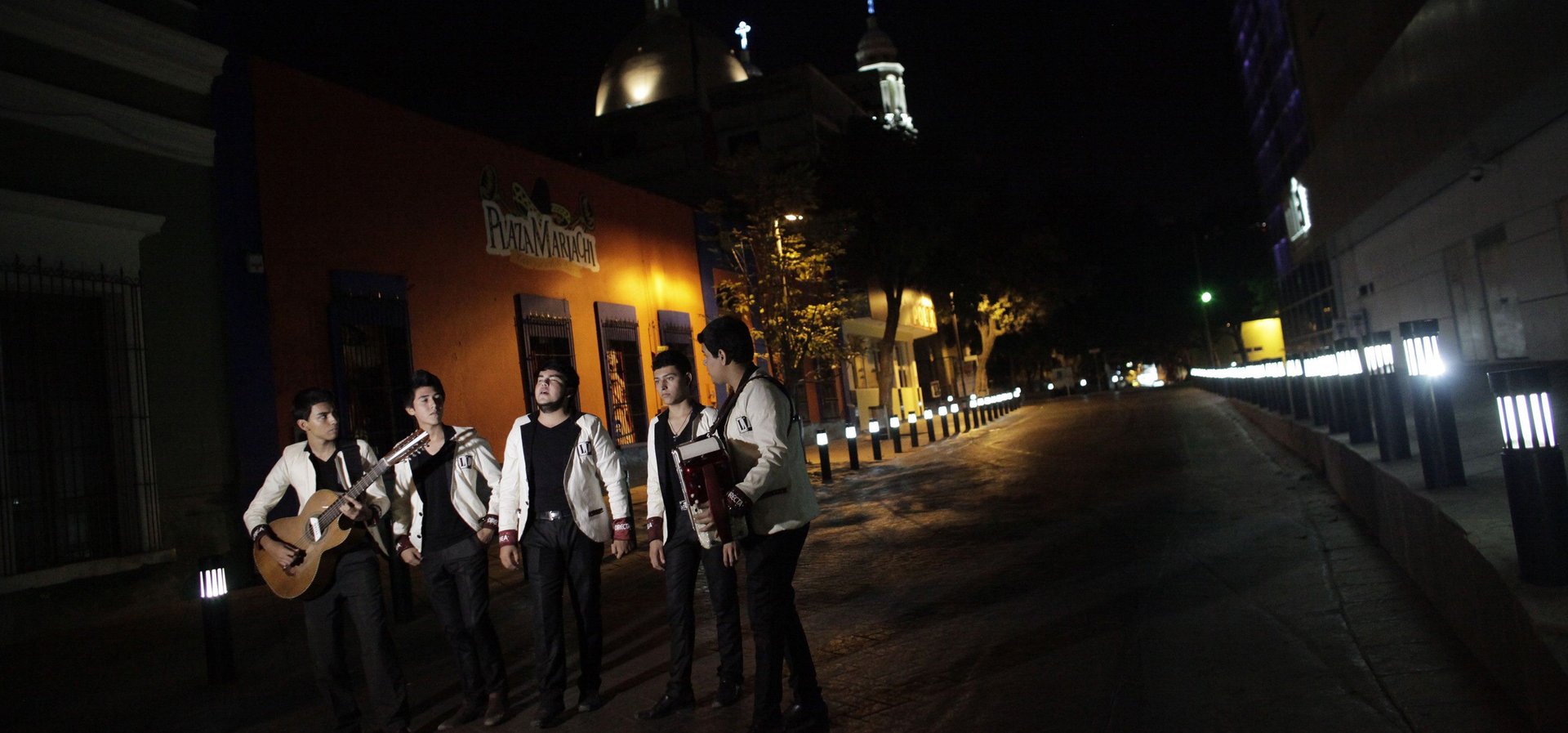Juárez banned songs about drug kingpins, but it’s hard to squash a multimillion-dollar industry
Juárez, a Mexican border city emerging from years of cartel-inflicted violence, is trying to distance itself from the drug deals and shootouts chronicled in narcocorridos, the accordion-heavy songs usually dedicated to popular kingpins of the drug trade.


Juárez, a Mexican border city emerging from years of cartel-inflicted violence, is trying to distance itself from the drug deals and shootouts chronicled in narcocorridos, the accordion-heavy songs usually dedicated to popular kingpins of the drug trade.
So this year at Juárez’s annual fair, which started Sept. 25 and is expected to attract nearly half a million people over the next three weeks, bands will have to play something else—city officials have banned narcocorridos from being played at public events.
It’s a futile fight. Drug cartels have permeated every aspect of life in Mexico, from politics, to economics to culture. In the process, they have generated a growing market for narco-themed goods and entertainment, in Mexico and beyond.
They range from simple T-shirts celebrating Joaquín “El Chapo” Guzmán (which sprung up after the drug lord’s escape from prison in July) to Sicario, a new film about the drug war, set in Juárez.
Rather than disappoint fans by abiding by the Juárez ban on narcocorridos, Voz de Mando, a Latin Grammy-nominated band whose hits include “500 Balazos” (500 shots), broke off its contract to perform in the city.
“We were going to be the losers,” band leader Jorge Gaxiola tells Quartz. “You’re either good with the people or you’re good with the government.”
Juárez mayor Enrique Serrano declined an interview request, but told local media that it’s the city’s duty to keep young people away from “this type of message that gives a criminal the status of a hero.”
While songs about Mexico’s most notorious criminals have been around for decades, the escalation of drug-cartel activity in that country has made narcocorridos more prevalent, says Josh Kun, a communications professor at University of Southern California who has studied them.
The trend is seeping into other forms of entertainment. For example, La Reina del Sur, or the queen of the south, a tale about a female drug trafficker, went from a best-selling novel to the most widely viewed soap opera at Telemundo (link in Spanish). More than 3 million viewers tuned in for the TV show in 2011, its first year, according to NBC Universal, which owns the network. Now USA Network is producing an English version, called Queen of the South.
As Kun points out, not all narco culture glorifies drug crime. While some of it is brazen in its admiration for the trade, other examples are more critical, and ask important questions about it.
Bands that perform narcocorridos haven’t achieved the popularity of mainstream Latino artists, like Pitbull for example, but the genre can be a lucrative one. Los Tucanes de Tijuana, a longstanding norteño band, has sold 2.4 million albums, according to Nielsen Music. Gerardo Ortiz, a newer act, is already up to half a million sold albums. To be sure, these groups also sing about less brutal subjects, like wounded love. But their narcocorridos have helped them gain strong followings.
Pepe Garza, programming director at Que Buena, an influential Spanish-language radio station based in Los Angeles, says three of the top 10 songs played on his shows are narcocorridos.
“It’s about excitement,” Garza tells Quartz. “Maybe there’s not a lot of action in our life, but in a corrido there is.”